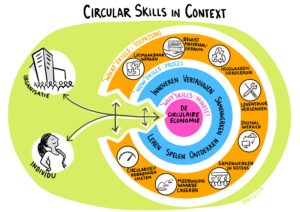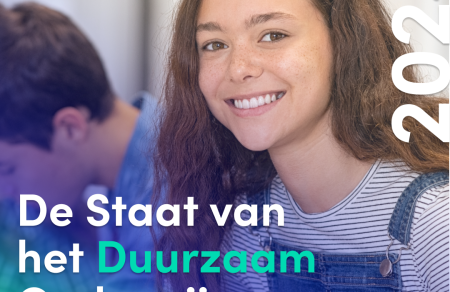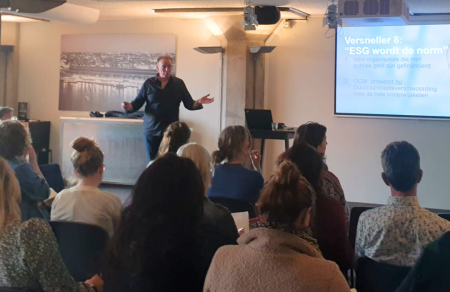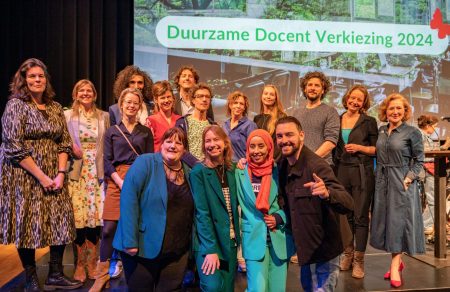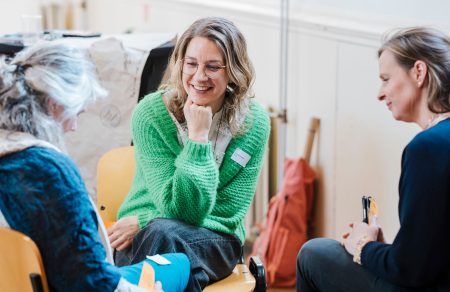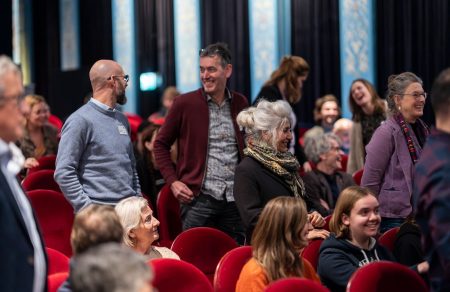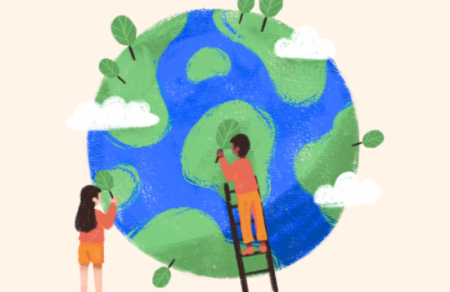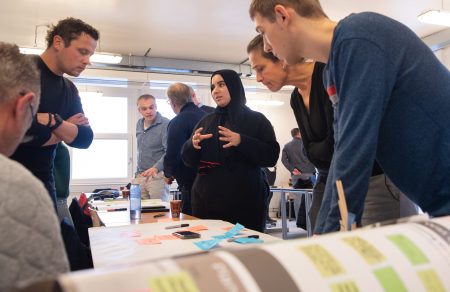These three aspects require new skills and competencies, both within organizations in transition and in your own career as a professional. Skills that enable people and organizations to perform their work in a new way from the interest of a more sustainable world.
The illustration "Circular Skills in Context" takes you into this world of skills using a skills circle along two tracks (people and organization). The circle is made up of three layers: 'WHY' skills, 'HOW' skills and 'WHAT' skills.
At the heart of the circle are the 'WHY' skills, which enable one to see, understand and convey the importance of a circular economy to another. These skills contribute to the direction, course and vision for a circular economy.
Around them are the 'HOW' skills, which translate vision and direction into business processes and/or pedagogical-didactical approaches (in education). Skills that contribute to the creation of a learning organization, in which people can develop and innovate freely.
The outermost ring contains the "WHAT" skills, which provide tools for applying circular principles in daily practice. In addition to technical skills, these include social, valorising and transversal skills.
Circular Skills in Context shows how these different types of skills relate to each other and why it is important for people and organizations to (continue to) acquire skills at different levels.
The image "Circular Skills in Context" was drawn by Betina van Meter (Bord&Stift) based on two roundtable discussions between Antoine Heideveld (Het Groene Brein), Jan Cromwijk (ISSO), Britt Wijnen (SBB), Maurijn Odé and Britt Molenkamp (MBO College Lelystad), Bas van den Berg (Haagse Hogeschool), Danielle Twardy-Duisters (Hogeschool Zuyd) and Daan de Kruijf (Coöperatie Leren voor Morgen).
"Circular Skills in Context" is a publication of the Circular Skills program of the cooperative Learning for Tomorrow. More information can be found on the Learning for Tomorrow website. Do you have questions about the program or want to comment on this image? Then contact Daan@lerenvoormorgen.org.

